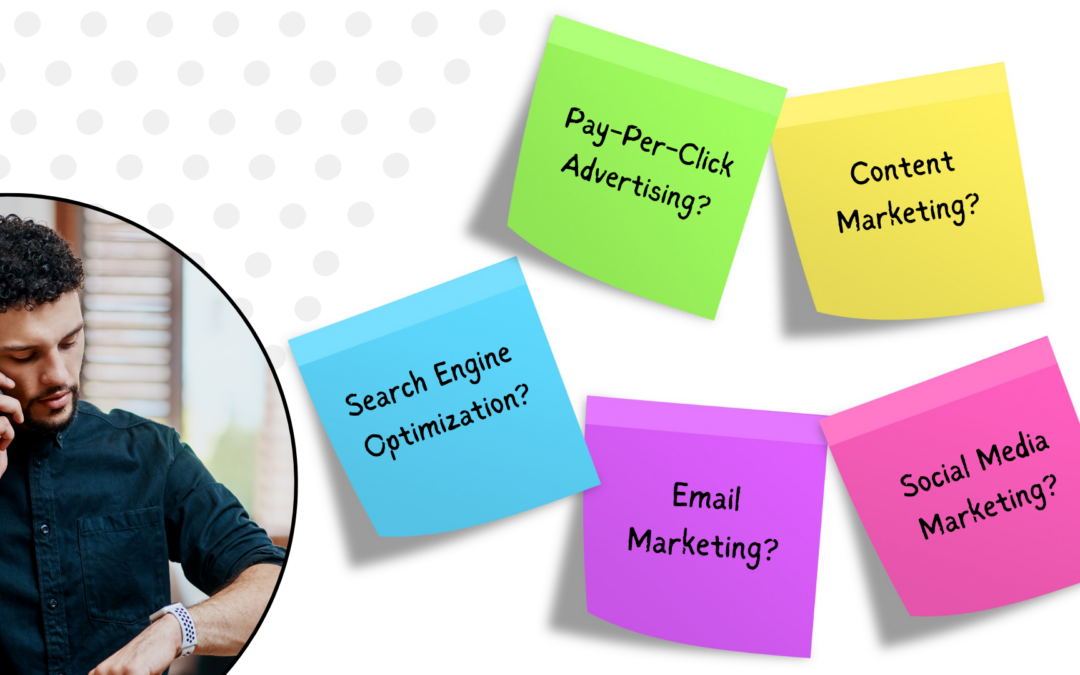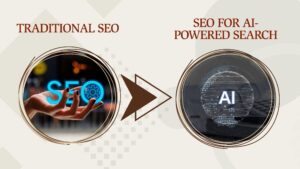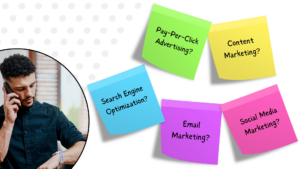The excitement is real!
You’ve pinned down your digital marketing strategies, lined up some stellar content, and set a solid budget for the next month or two. The excitement is real as you’re ready to see your marketing efforts take off.
However, the months pass and you barely see a blip in the results. What gives?
You start second-guessing your strategies and are ready to pull the plug altogether.
Stop!
Marketing results take time.
How Long Should I Wait to See Marketing Results?
We often hear these questions from clients:
- How soon will we see results?
- What are realistic digital marketing timelines?
Marketing timelines depend on many factors—earned takes longer, paid is faster.
Earned Marketing – Builds visibility over time through SEO, blog content, social sharing, and word of mouth—can take 3 to 12 months to see strong results. Great for long-term trust and organic growth
Paid Marketing – Involves spending money on ads (Google, social media, sponsored content) —Delivers faster results—sometimes within a few weeks. Ideal for short-term boosts or targeting specific audiences
*Actual timelines vary based on your industry, audience, and budget.
Ready to master the details? Let’s dive in.
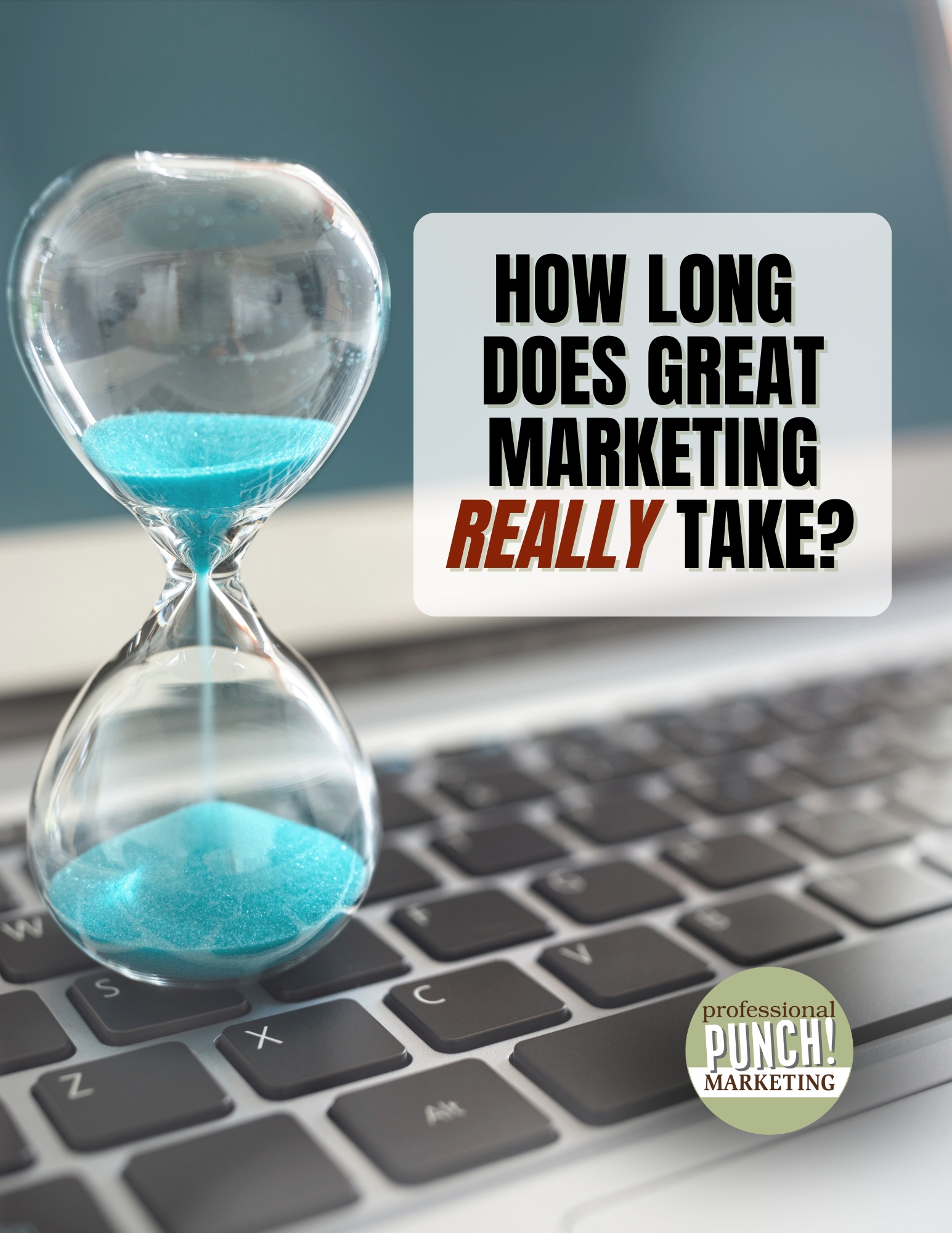
Speed to ROI: Comparing Marketing Channels
There are multiple channels that companies can use to match different business goals, for a well-rounded marketing effort. Different digital marketing strategies deliver results at their own pace, since each tactic serves a unique purpose.

SEO Timeline: How Long It Takes to See Results
Trying to rank for target keywords in search engine results pages takes time. We’d say it takes at least 4 months to see noticeable results and we strongly suggest consistent SEO (Search Engine Optimization) efforts for at least 12 months for a significant increase in web traffic.
Once you’ve attained your marketing results from SEO, you can’t abandon this strategy! Consistency matters with SEO to maintain all the gains you’ve achieved.
Want SEO Wins? Understand How Google Search Works
SEO takes time–thanks to search engines like Google. As Google Search dominates the search landscape with over 89% of the market share, for successful SEO strategies, you need to understand how a search engine works.
Google’s goal? Provide the most relevant content for search terms. To do so, it has complex algorithms. That’s why you can’t game the system for quick marketing results.
When you search on Google, you’re not scanning the entire web—you’re searching Google’s index of the web. When you enter a keyword, Google scans its index using over 200 factors, including keyword placement (in titles, URLs, and content) and backlinks.
Former Google engineer Matt Cutts explained this in a video a while back, and it’s still remarkably relevant and worth a watch for deeper insights.

Content Marketing Timelines
Google wants to provide users with useful and impartial information from trustworthy sources.
Content marketing is one of the best ways to build authority over time.
An organic strategy, it works best when done with SEO. Blog posts, articles, and guides may take 3 to 6 months to drive consistent traffic.
And, by optimizing your content for search engines, your content gets seen by the right people at the right time, making your efforts far more impactful
Content Marketing Insights You Can’t Ignore
Here are some key insights from this year’s Search Central Live in NYC that can give your brand an edge.
- Big brands rank higher due to recognition – It may seem like Google favors larger brands, but this is often because they’ve spent years building content and recognition.
- Smaller brands can still compete – Google is working on improving algorithms to help smaller, independent sites rank better.
- Be memorable – Stand out by creating unique content and a clear brand identity. Your site should instantly tell visitors what you’re about, no digging required.
- Highlight your differentiators – In a sea of similar businesses, clearly showcase what makes you unique.
- Prioritize valuable content over SEO tricks – Instead of just optimizing for SEO, focus on creating content your audience finds genuinely useful. This strengthens your brand’s relevance in search results.
How Fast? Top 5 PPC Channels Compared
If you’re looking for immediate results, PPC is your best bet. You may start seeing results in a matter of a few days or weeks. For maximum ROI, you’ll need about 1 to 3 months to optimize copy, refine bidding strategies, and fine-tune campaigns.
PPC results vary by industry and audience (B2B vs. B2C), but these timelines offer general ROAS benchmarks to guide expectations.
Facebook & Instagram Ads: Fast engagement (days), meaningful results in 2–4 weeks. Works for both B2B and B2C.
Google Ads: High volume, high intent. Allow 3+ months for campaigns to mature and deliver strong results.
LinkedIn Ads: Slower ramp-up (4–6 weeks), but effective for B2B if well-targeted. Higher cost, high value
TikTok: High visibility, but requires creativity and testing. Expect steady results by month 2–3.
YouTube Ads: Early traction in 1–2 months; stronger performance typically starts around month 3.
Bottom Line: PPC delivers quick wins, but real ROI takes a few months of testing and fine-tuning.
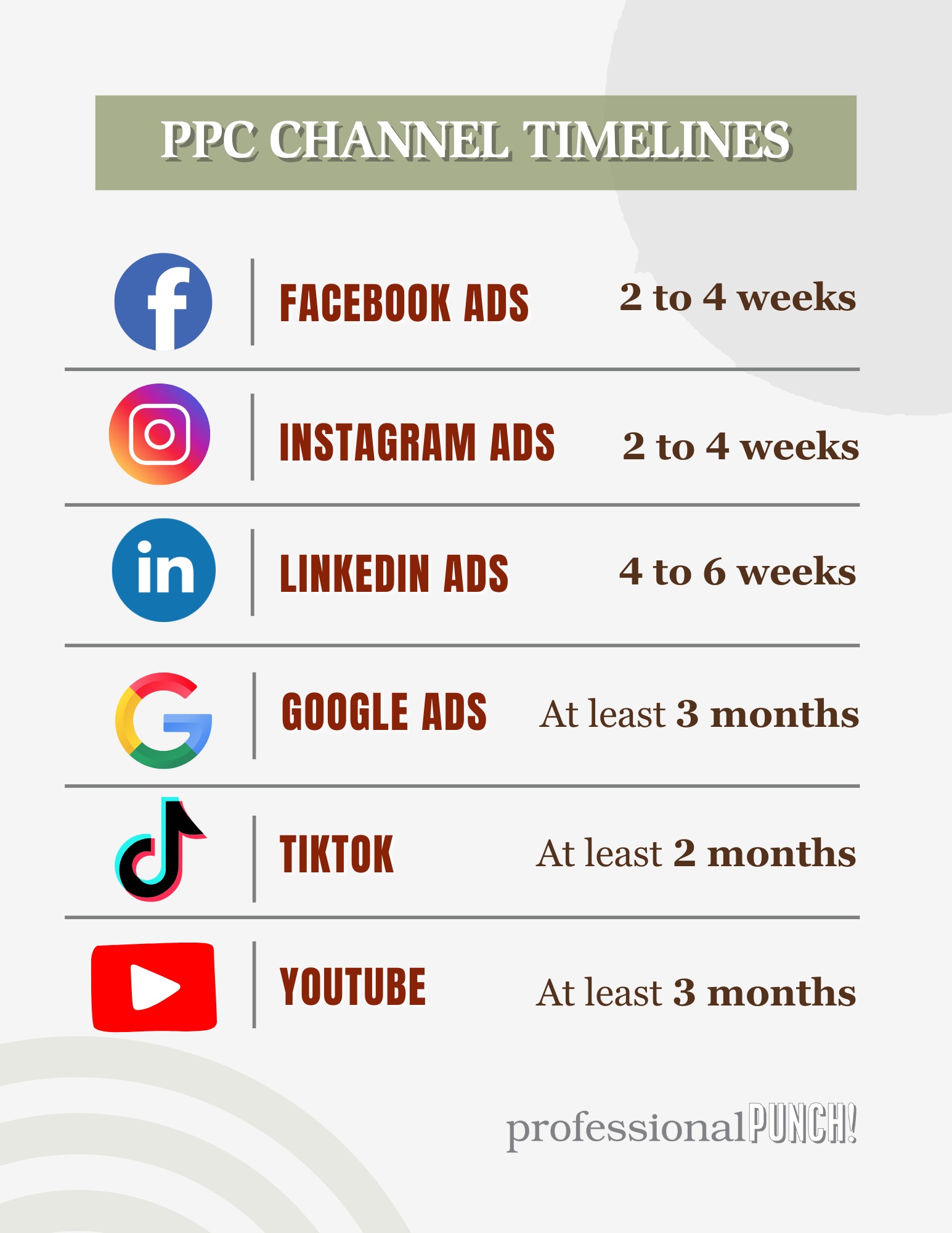
Speed to Impact: Email Marketing Results Timeline
This is another digital marketing strategy that can give you faster results than the organic strategies we mentioned above. You can see opens, clicks, and conversions within hours or days of sending a campaign.
However, it takes time to build a subscriber base and even more time and communication to nurture leads.
Bottom Line: Successful marketing campaigns can take several months to build.
Social Media ROI: How Long it Takes
Marketing timelines for social media marketing can vary. An increase in engagement, such as a rise in the number of likes and comments can happen quickly but you’ll need 3 to 6 months for meaningful growth and conversions.
Bottom Line: With social media, quick wins are possible, but real growth and conversions take consistent effort over time.
These timelines offer general benchmarks, but real results will vary based on your goals, industry, audience, and the consistency of your marketing efforts.
5 Key Factors That Influence Your Marketing Timelines
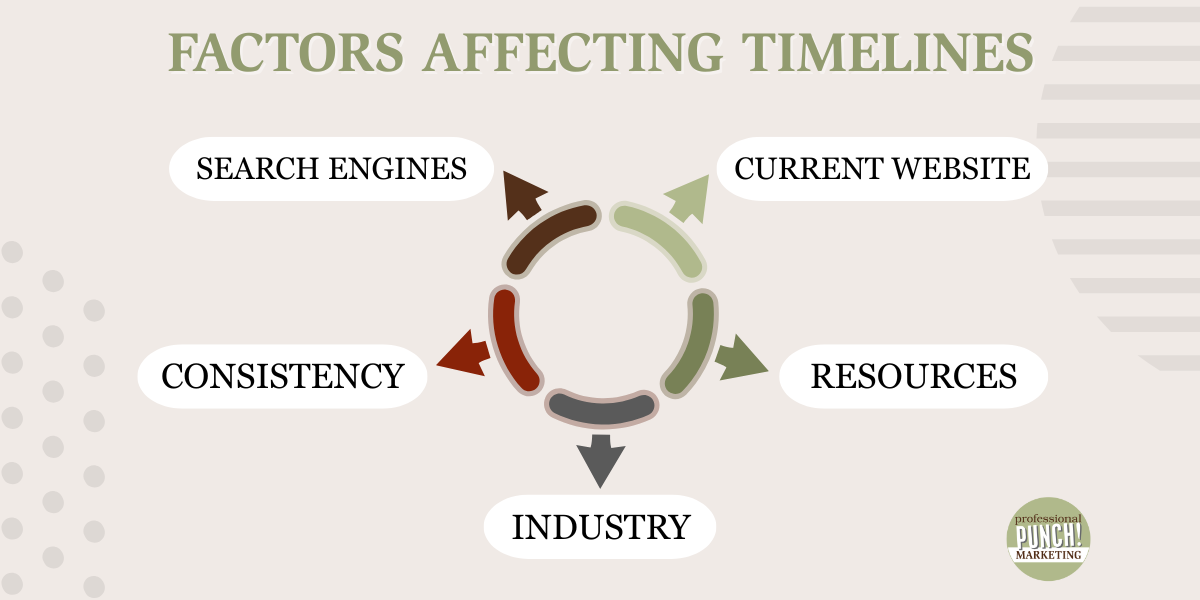
1 – Your Industry and Competition
Some industries are just more competitive than others. For example, it would take more time and effort to rank in saturated and competitive industries like e-commerce and finance. Businesses in smaller and more niche industries could see their digital marketing strategies yield results in shorter time spans.
2 – Marketing Resources and Budget
Even with organic strategies, a larger budget can mean shorter marketing timelines. Larger budgets allow for more content, ads, and outreach, speeding up results.
3 – Your Starting Point
What’s the current state of your website? Do you have any marketing plans in place? Your marketing timelines will depend on where you’re starting from. For example: A new website with no domain authority takes longer to rank, while an established site with existing traffic may see results faster.
4 – Consistency and Content Quality
To obtain good marketing results, you need to be consistent. Regularly publishing high-quality, valuable content improves SEO and authority over time.
5 – Search Engine Algorithms
Search Engines update their algorithms pretty regularly. Some of these changes may have a huge impact on your marketing results while others may not. Be sure to stay updated and keep your marketing strategies agile.
See Real Results With the Right Marketing Agency
Marketing is a journey, not a destination—it takes time, consistency, and the right partner. DIY marketing can stretch your timelines. Without a clear strategy, efforts often become inconsistent, and mistakes are more likely.
By working with a marketing agency, you get data-driven strategies tailored to your business. Expertise ensures consistent execution, fewer missteps, and smarter adjustments.

